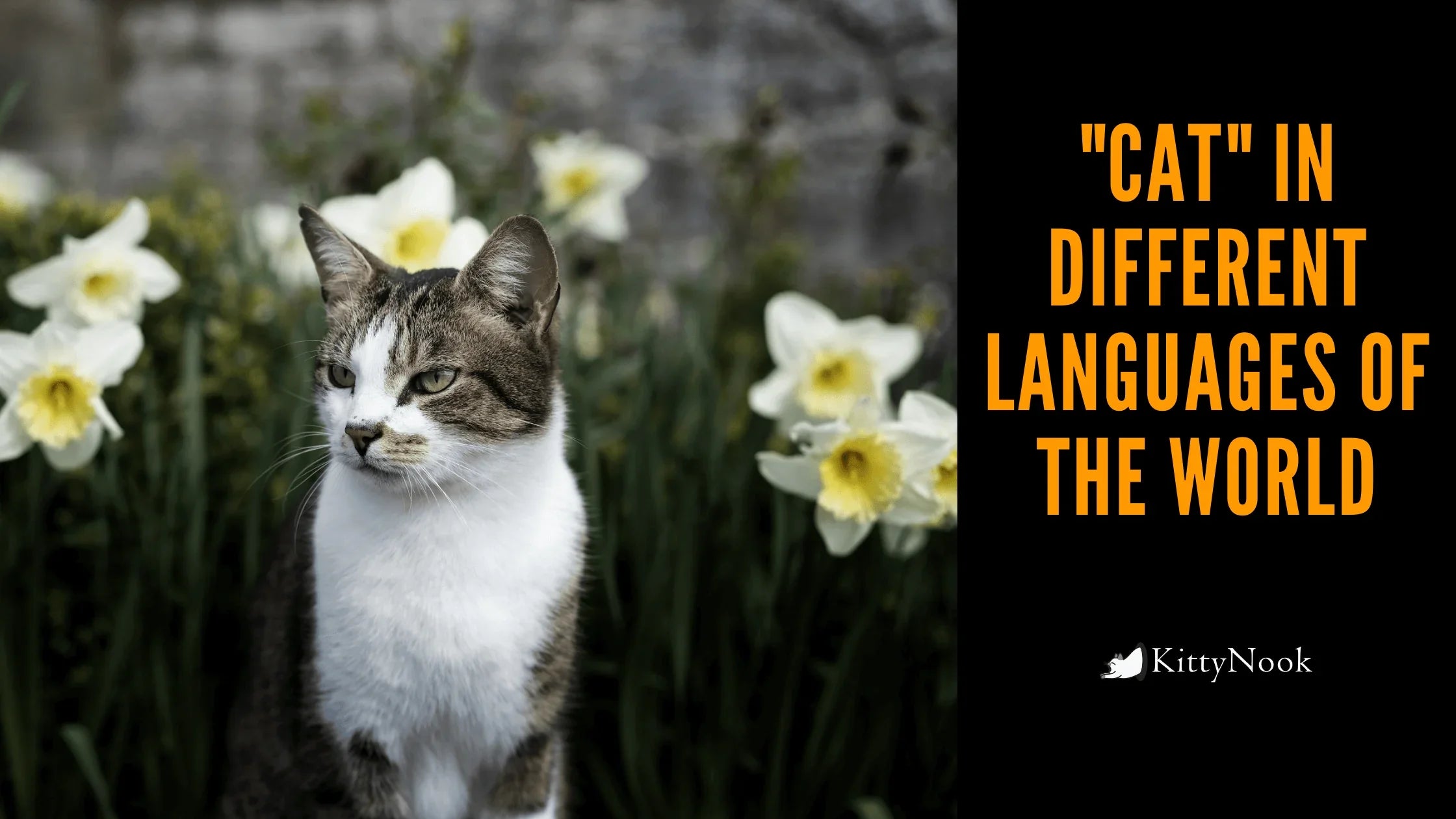Thanks to the Internet and a global network of cat lovers, you can easily find out what cats are called using a handful of search words. There are over 1000 variations of the word "cat" that are in use around the world. Here I will tell you about the most popular ones. Let's feed our cat curiosities today!

The English word was derived from the Old English catt, which came from the Late Latin cattus. In Spanish, a cat is called gato; a kitten is gatito, and a female cat is called gata. In French, a feline is chat, a kitty cat is chaton, and a female cat is chatte. (A word of warning: this word is likewise vulgar terms for a part of women's body.)
The Cat-Sìth or Cat-Sidhe is mystical cat from Celtic mythology. It is claimed to appear like a big black feline with a white area on its chest.
Popoki is the Hawaiian word for a cat. In several Native American languages, whether a term refers to an animate or inanimate object is influenced by its usage. The Cree call them minos. In Cherokee, the cat is wesa, and kittens are called wesa usdi.
The Mayans politely called the feline miss. The Lakota call cat igmu and kittens igmu-chi-ka-la. Aztecs call jaguars tecuani in the Nahuatl language, which are sacred to the war god Tezcatlipoca.

It is in Europe where we find incredible fairy tales and folklore about felines. In Germany, a cat is called Katze, and a kitten is Kätzchen. (Nouns in German always begin with uppercase.) In his indigenous Italy, Puss in Boots is called "Il Gatto con gli stivali," and in French, he's "Le Maître Chat," which means "The Master Cat."
The Shrek films portray the hero in Spanish, where he would be called "El Gato con Botas." The Portuguese as will not be so different: "O Gato de Botas." Spanish and Portuguese are similar languages on the surface. However, the sentence structure (among other things) is very different.
In Greece, dubbed as "the land of a thousand strays," a cat is also called gata, a kitten is gataki. In Swedish, it is katt, and in Finnish, it is kissa. In Russia, a cat names you instead! But seriously, koshka is a female cat, and kot is a tomcat.
In Egypt, where the feline was when sacred, the word for cat is mau. The Swahili word for cat is paka. The Yoruba word for a kitten is ologbo. Amongst the Zulu people, the cat is called ikati. The Igbo call a domestic feline pusi. The word for cat is kat in Dutch.
The Arabic word for a cat can be Anglicized as gut and articulated like "cut." In Turkish, the feline is called kedi. Iran is the native home of the Persian cat, and the Anglicized word for cat is gorbe.
Yiddish speakers may be more acquainted with the word ketschele or simply kats, though the Hebrew word for it is chatul. Also in Yiddish, a Katsnkop, translated as "cat in the head," is a forgetful individual.

And now, let us take a slow watercraft to China, where the Mandarin word for cat is mao. In Japan, a cat is called neko, while a kitten is called koneko. In a Japanese anime, a girl having cat ears or other feline attributes is called a nekomimi. Anime fans, we go you!
In India, cats are believed to bring bad luck in general, and the word can be Anglicized as billee. The Oriental word for cat is goyang-i. In Vietnam, the feline is called con mèo. In the Philippines, cats are called pusa, and the kitten is called kuting. In Malaysia, the cat is called kucing. It's tough to Anglicize the Thai word for kitten (แมว), yet it seems like a very drawn-out "Meow."
And The Rest Of the World...

The only two continents left are Australia and Antarctica. A few researchers and fishermen brought their felines with them, but this did not last long.
In Australia, cats contribute to the extinction of endemic animals and are very strictly regulated.





















